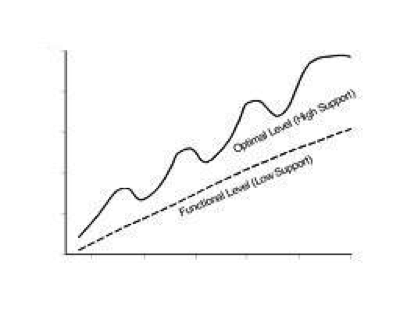I would not consider myself to be a denominationally oriented believer. I was raised with an appreciation of most denominations and the uniqueness that they brought to the Body of Christ. Until a couple of years ago, all my ministry experience was with non-denominational para-church organizations. The para-churches I worked with ministered to many denominations and worked with a large range of ideologies across the Christian spectrum. I came to be highly respectful of their individual convictions, but never identified closely with any of them. I never thought of myself as an “organized religion” person and have always been highly skeptical of institutionalized faith. To me, one goes to the church to which one is called. I believed in attending a church based on its community and presence of the Holy Spirit in services, rather than specific doctrine. Such was my personal disposition until last week.
Last week I attended the national Foursquare convention in Dallas, TX. At convention I watched acts of courage, forgiveness, sacrifice and honor. I was moved by the humility of the leaders and their courage to both admit mistakes and make new choices. I was inspired that their resounding conviction was to seek Christ and participate with His work, and that the rest is just texture and style. For the past three years I have been having visions of the Kingdom of God in America, and God has whispered secrets of strategies of how He wants to bring it about. Alongside of that I have seen traditional church in America become increasingly disconnected from future generations and the people whom we are called to love and serve. I have seen the general church in America spend its time and resources fighting culture wars instead of reaching their communities. And I have seen young people called by God lay down their lives to follow Him and usually having to sacrifice the support and approval of their home church because what they feel called to does not fit the previous paradigm of “minister” or “missionary.” Above all, I have seen institutions send out church planters to be eaten alive by the wolves of this world through lack of proper training and continued support. Institutions have used the systems as an excuse and hide behind them as defense for this continued and repeated negligence.
Last week the Foursquare convening body looked at those realities in the face, owned up to them and decided to do something different. I was deeply moved by the courage of the people. We all know people don’t change, except when they do. I saw people working to be who they feel they are called to be, both as Christians and as individuals with a unique giftedness. Never have I seen this before in a large body of believers. If a church of 100 gets to that place, it will change a city. I believe that a denomination laying down their own plans for His plans – that can change a nation.
Beyond this, I have two main reasons Foursquare has won my heart.
- Values-based Christianity
I love that Foursquare is a values-based denomination. It is not ritual-based or even theology-based. This comes from Amy Semple-McPhearson and it is brilliant. Of the three listed above, only values can transcend culture and generations. Theology is inherently constrained in worldview and cultural experience. We experience God through the lens of our cultural and ethnic identity. Ritual-based denominations are constrained even more locally as the interpretation and meaning of rituals is often identified with individual teachers and his perspective.
Values, on the other hand, are free to find their expression in many ways through individual relationships with Christ. Through values, Christians from all over the world and from every culture and ethnicity can come together and find common ground. They can even teach and challenge one another in the expression and understanding of the shared values. In this way we can be a global body moving in unity and uniqueness.
- Appreciating the growth curve of continued development
In her book, the Fountainhead, Ayn Rand talks about the divine right of stagnation. She discussed the perceived “right” of individuals to stop growing, developing, and to stop learning. While I cannot join her in her camp of valuing the unbridled ego nor am I a staunch individualist, I can appreciate her argument that individuals must grow and learn individually for the group to grow and learn. We cannot let an entity outside of ourselves do our growing or our thinking for us.
I think that historically (for plausible reasons) ministers have clung to a divine right of stagnation. It use to be that training, if required, was unstandardized nature and not thought of as a continuous process. It was a boxed to be checked and moved on from. As the world has evolved and changed, that is no longer sufficient. I suspect some worry that to go back to school or to enroll in classes or studies might pull their time away from the call of God on their life. They are so busy doing the “work” of God that more on their plate sees like an unreasonable burden. To that I seek to remind us all that in order to make disciples we must first be a disciple. There is a difference between a believer and disciple. A believer can claim the right of stagnation, but a disciple never can. Life-long learning is foundational to being a disciple.
In development, there are really two types of curves, one is bell-shaped and the other is s-shaped.

There are two ways to arrive at a bell-shaped curve. The first is to decide that you have accomplished something and therefore must have “arrived.” Learning and growth happen until the desired end is achieved and then choice of stagnation turns into regression. People may accomplish an amazing height, but they do not end well. An example of a bell-shaped career is that of Picasso. All of the work we work and celebrate happened within a short number of years. Those years changed the world, but he never found new magic and his work declined in both influence and value.
The second way to achieve a bell curve is through comparison. There is always a middle, a low end, and a high end. But the truth is that comparisons are illegal in the Kingdom. We are never given permission to compare our walk or favor or giftings with other people. 1 Corinthians 12-14 specifically addresses this attitude. I would make the argument that at bell curve is never God’s intent.
An s-shaped curve, however, is something described in scripture both implicitly and explicitly. We go from glory to glory (2 Corinthians 3:18) and that his later days may be more fruitful than his former (Job 42:12).

An s-shaped curve has peaks and valleys, high points and low points. But after each low point the learning makes a turn to regroup and re-learn which takes them to a whole new place. This takes courage and vulnerability and this is what Foursquare has done as a body (which to me means that many within the body have also done this individually). An s-shaped curve is also indicative of an individual or organization working at their full capacity. This happens only in a highly supported environment and it means that they are doing their very best. The other option is to remain at a functioning level with no support (either from Holy Spirit or from others), which results in linear growth until it turns into a bell curve.
Foursquare has found a way to turn the ship individually and now corporately. There is much to be admired in that. Suffice to say, I am planting my stake in this ground. I have come home, which for this religious orphan is a big deal. I have found a group of people willing to hold themselves accountable and willing to make choices I did not think were possible outside of a small body of 20-30 people. That is something I can be a part of, those are people I can follow, and that is why I am Foursquare.


Recent Comments